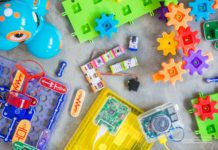Published on BW Education | July 2020
Technology is fast becoming ingrained in all aspects of our lives in the 21st century and exponential development of applications are driving the convolution of a thin line between humans and machines. Advancement in technologies, such as Artificial Intelligence (AI) based devices, smart wearables, augmented reality (AR) systems and digital assistants, to name a few have a significant usage on a daily basis.
To keep pace with this exponential growth, the youth of tomorrow and children of today needs to be abreast with – what is happening, why is this happening, what more can be done, and how it can be done. Unfortunately, in India, the traditional K-12 education systems are not designed to focus on the need of the hour and are inadequate to train and prepare the children for the future. The current focus is often misaligned on the practical applications and development of an inquisitive problem-solving mindset that is aided with skills and tools to actually develop a potential solution for any of the problems.
Technology plays a pivotal role for a student, irrespective of her/his choice in a career – comprising both technical and non-technical career. Children today are increasingly finding it at ease working with technologies integrated with computers, smartphones, and other digital and wearable devices. Even if a student chooses a ‘non-technical’ career, they still consume and use technology unbeknownst to them.
The current education system lacks the development of vocational and technical skills that are required in the market today. According to a survey report, the millennials feel out of depth in workplaces which are revolutionized by applications based on exponential technologies including artificial intelligence and automation. This impacts the career progression, steepens the learning curve and cause duress to the youth
Moreover, lack of basic infrastructure in tier 2 and 3 cities further compound the problem, where lack of infrastructure, relatively weaker exposure to quality education leads to inferior communication and technical skills and lower confidence levels, in comparison to students from Tier-1 cities. This does not by any means implicate that Tier-1 city students are equipped. They may have better resources and exposure, however lack of focus of the overall curriculum on developing technical skills, presents a bleak future for the next generation.
Some of the problems in the Indian K-12 education space includes:
1. Focus on rote learning
The education system and academic curriculum in India emphasize more on theoretical aspect rather than the application of what has been learnt. The student’s mindset and inquisitiveness fades leading to lack of employable skills and their technical abilities.
2. Insufficient resources and infrastructure
Imparting quality education is an expensive affair and schools, especially those in tier 2 and 3 cities, lack costly equipment and associated infrastructure. Auxiliary support and personalized coaching is also an expensive proposition for them owing to lack of funds.
3. Inexperienced instructors
Majority of the teachers, instructors, and trainers are under-qualified and product of the same education system which promotes rote learning. Improper orientation and inadequate training results in teachers with average skill sets.
4. Neglecting the employability aspects
The current K-12 education system is not oriented towards employability and is more focused on learning through an outdated curriculum & content that was relevant in the past. It severely lacks life skills, focuses on an amalgamation of tech and practical mindset, the building of self-confidence, personality, and communication skills.
5. Lack of practical experience and exposure
In India, the curriculum does not focus on the practical application of a subject and linking it to solving a problem. Even practical’s for application subjects such as science are more theoretical in nature and are not adequate to make students learn the application. It gives an overview of the subject without tools to create a solution that is usable. The mindset of a student, therefore, limited to the bookish knowledge.
6. Focus on memorizing than learning
The education system in India measures student performances based on their memory than an application mindset. Rather than testing the understanding, analyses and interpretation of a topic, students are expected to memorize and write the answer in examinations. This aspect is detrimental for innovation and students face problems in the future.
7. Neglecting the importance of practical knowledge
With the advancement in technology, job profiles are rapidly evolving to have skills that are harnessed with technical education. According to a report in The Economic Times, 72% of employers consider the employability levels among candidates at considerably low. The same study revealed that the gap between the skills of candidates and need of the industry is due to the absence of rich up-to-date and problem-solving based content.
There is a plethora of reports and evidence that show that the foundation of employability and technical skills should be laid at the stage of elementary education and K-12 schooling. Laying the foundation of technical knowledge and skills at elementary or school levels can lead to a brighter path for the youth of the future. Only with these critical changes can we have a generation that is worthy to create a world of abundance.
Published on BW Education | July 2020




























